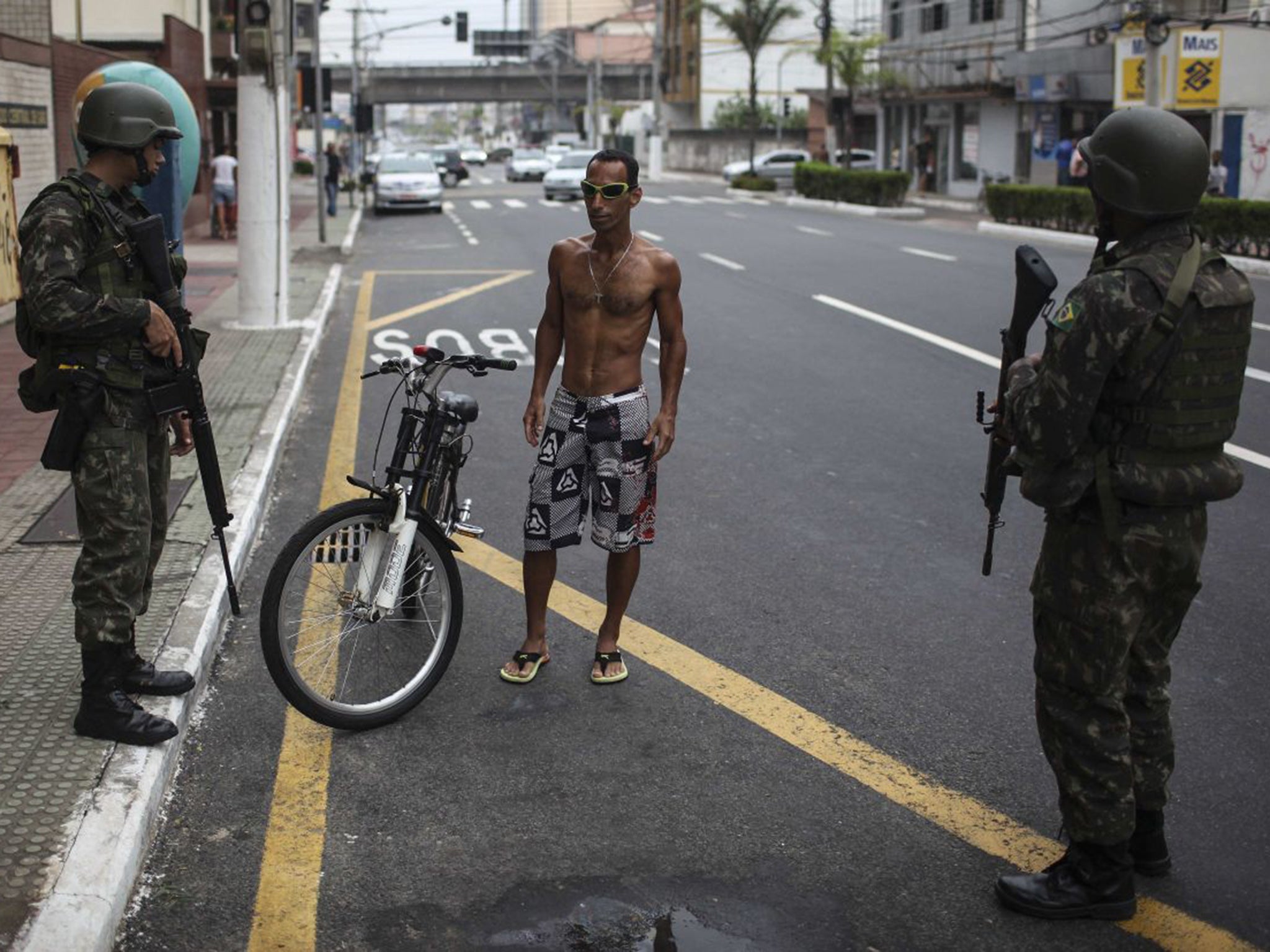More than 100 dead in Brazil state amid anarchy spurred by police strike
State officials say they need hundreds more federal troops and members of an elite federal police force to help establish order

Your support helps us to tell the story
From reproductive rights to climate change to Big Tech, The Independent is on the ground when the story is developing. Whether it's investigating the financials of Elon Musk's pro-Trump PAC or producing our latest documentary, 'The A Word', which shines a light on the American women fighting for reproductive rights, we know how important it is to parse out the facts from the messaging.
At such a critical moment in US history, we need reporters on the ground. Your donation allows us to keep sending journalists to speak to both sides of the story.
The Independent is trusted by Americans across the entire political spectrum. And unlike many other quality news outlets, we choose not to lock Americans out of our reporting and analysis with paywalls. We believe quality journalism should be available to everyone, paid for by those who can afford it.
Your support makes all the difference.More than 100 people have been reported killed, with schools and businesses closed and public transportation at a standstill, as a six-day strike by police in the Brazilian state of Espirito Santo shows no signs of abating.
Chaos and anarchy spurred by the strike continued in the coastal state to the north of Rio de Janeiro, despite the deployment of 1,200 army soldiers and federal police and the promise that more help was on its way.
Most of the violence is centred in the state capital Vitoria, a wealthy port city ringed by golden beaches, where mining and petroleum industries have a strong base.
State officials said they needed hundreds more federal troops and members of an elite federal police force to help establish order and make up for the 1,800 state police who normally patrol Vitoria's metropolitan area.
The state government has not released an official number for killings since police went on strike on Saturday for better pay, but a spokeswoman for the union representing police told Reuters early on Thursday it had registered 101 homicides since Saturday.
That would be more than six times the state's average daily homicide rate compared to last year's data.
The Globo TV network, citing security officials, reported that 200 cars were stolen in Vitoria on a single day, when the state average is 20.
The state's retailers association said that businesses have lost 90m reais (£23m) since police walked out on the job.
The strike has been assisted by family and friends of officers who have blocked access to barracks and police stations. It comes as Espirito Santo, like many states wracked by Brazil's worst recession on record, struggles to ensure even basic health, education and security services.
Representatives of the striking police, including some of the officers' wives, met with state officials on Wednesday night - with further talks planned - to demand that salaries be doubled for every category of officer. The union said they have not received a raise in four years.
The base monthly pay for an officer is 2,643 reais, according to Corporal Thiago Bicalho, a spokesman for striking police.
“We are going to analyse the offer and see what we can do in reality to advance this situation,” said Julio Pompeu, director of the state's human rights secretariat, who is helping the government negotiate with police.
Reuters
Join our commenting forum
Join thought-provoking conversations, follow other Independent readers and see their replies
Comments